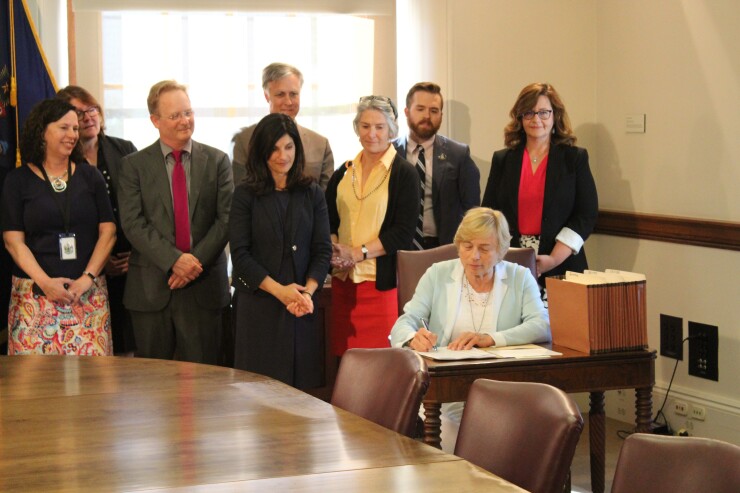Maine adopted its $7.98 billion two-year budget Monday, well before deadline, and avoided the political infighting that delayed the state’s previous spending plan.
Gov. Janet Mills signed Maine’s fiscal year 2020-2021 biennial budget after it received bipartisan legislative support from two-thirds of state senate and house members. The two-year budget was finalized with two weeks to go in the legislative session without the

“I am proud of all the work that lawmakers on both sides of the aisle have put into this, and I am proud of the bipartisan agreement we achieved,” Mills said before signing the budget. “I appreciate the work that members on both sides of the aisle have put into this process, and I believe, through it, we have returned to an air of civility and bipartisan agreement that has been lacking in the past.”
The final budget is smaller than the $8.04 billion spending plan Mills first
The budget provides $125 million for voter-approved Medicaid expansion, down from the $147 million Mills initially proposed over the next two years. Mills, a former Maine attorney general, began
Mills’ first budget represents an 11% increase from Maine's $7.1 billion two-year spending plan
The legislature is slated to recommend a bond package to go before voters this November for funding improvements to infrastructure, broadband service and tackling the state’s labor shortage. Mills recommended a $239 million
Moody's Investors Service and S&P Global Ratings both affirmed Maine's general obligation bonds in May at Aa2 and AA, respectively, with stable outlooks.





